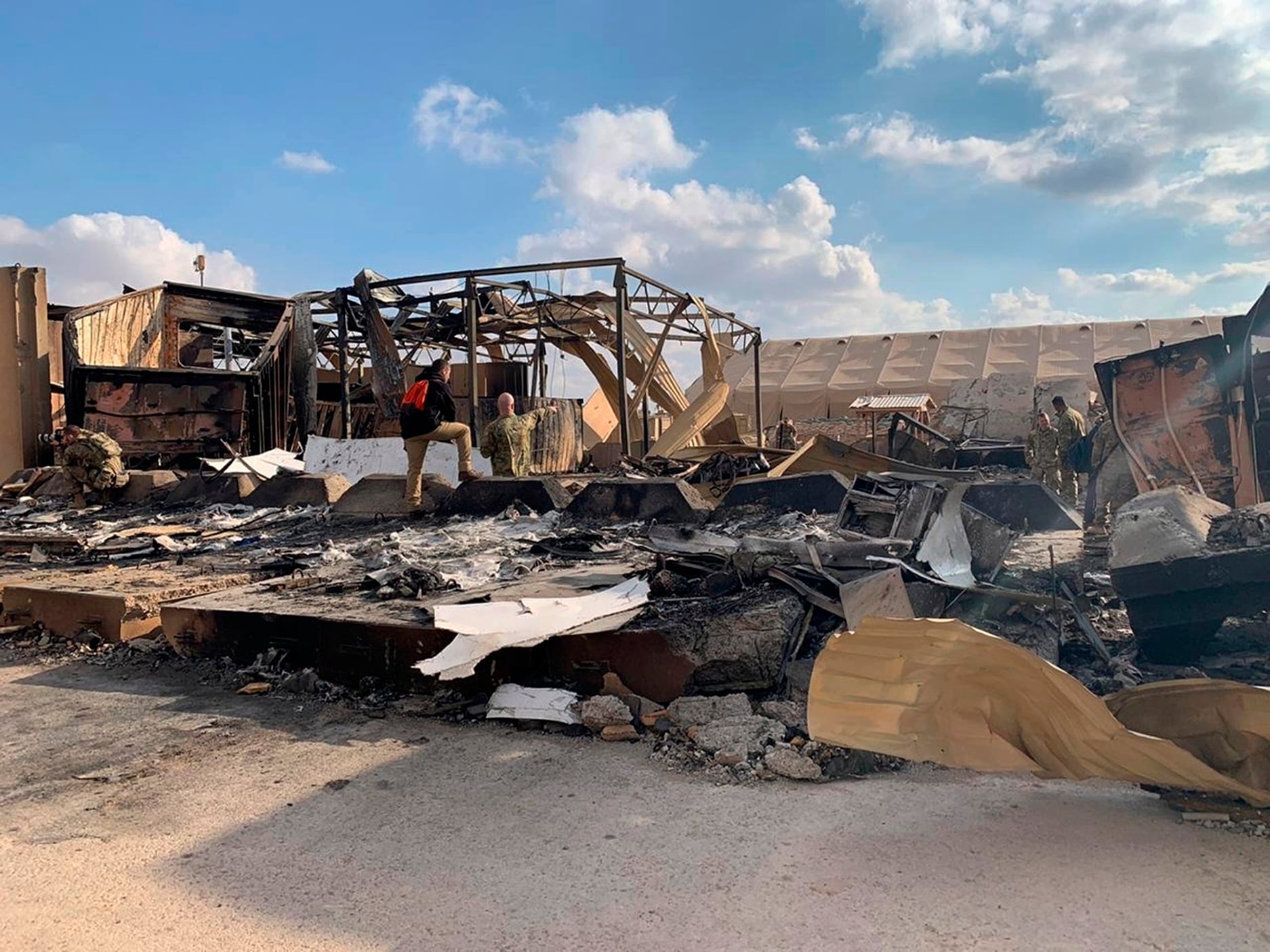Correction: A previous version of this article stated that 31 soldiers were approved for Purple Hearts. However, after this article was published, Army officials announced that there had been a total of 39 approved awards.
The Army has approved 39 Purple Hearts for soldiers injured in January 2020 when Iran attacked Al Asad Airbase in Iraq with 16 ballistic missiles, according to an email obtained by Army Times.
“The Army’s Human Resources command approved 39 Purple Heart submissions it recently received for Soldiers wounded in the January missile attack on Al Assad airbase,” said Army spokesman Lt. Col. Gabriel J. Ramirez in a statement. “They continue to review an additional 11 nominations, which will be decided on the individual merits.”
Most of the 39 soldiers suffered traumatic brain injuries in the attack, which came amid a period of spiraling tensions in the region after a U.S. drone strike killed Iranian Quds Force commander Qassem Soleimani. The email included a list of awardees, which included Sgt. 1st Class Daine Kvasager, who told CBS News last month about how his injuries have changed his life.
“The person I was prior to a traumatic brain injury, he’s gone,” Kvasager told CBS News. “There’s parts that remain. The pieces are all still there, just — yeah, he’s not coming back.”
According to CBS, the Army reconsidered the awards after Col. Gregory Fix, commander of the Minnesota National Guard’s 34th Expeditionary Combat Aviation Brigade, wrote a letter arguing on behalf of the troops who had been under his command at the time.
Another soldier interviewed by CBS, Chief Warrant Officer 2 Michael Pridgeon, also received the award, as did Spc. Jason Quitugua, who will receive the Purple Heart posthumously. The junior enlisted soldier died by suicide following his injuries.
“He struggled, you know, like we all are, like I am,” Kvasager, who served with Quitugua, told CBS News. “It’s just heartbreaking.”
Other soldiers on the list are stationed at Fort Bragg, Fort Rucker, Fort Carson, Fort Bliss and Fort Drum. Army Times is withholding the names of soldiers who have not spoken publicly about their injuries out of respect for their privacy.
More than two dozen troops have already received Purple Hearts in connection to the attack, and the new awards will more than double that total.
Why were the Purple Hearts delayed?
According to CBS, the Pentagon may have initially set an “arbitrary” standard for the awards: injured troops medically evacuated from the base received a Purple Heart, and those who remained did not.
In the immediate wake of the attack, then-President Donald Trump downplayed its impact — describing the injuries as “headaches.” That led to political pressure to award fewer Purple Hearts, the injured soldiers argued.
An inspector general report released in November also faulted U.S. Central Command for improperly tracking the TBIs.
The awards are important because they are directly tied to major benefits for wounded troops — priority Veterans Affairs medical care, educational benefits, disability consideration and various state-level benefits.
Military Times Pentagon bureau chief Meghann Myers contributed to this report.
Davis Winkie covers the Army for Military Times. He studied history at Vanderbilt and UNC-Chapel Hill, and served five years in the Army Guard. His investigations earned the Society of Professional Journalists' 2023 Sunshine Award and consecutive Military Reporters and Editors honors, among others. Davis was also a 2022 Livingston Awards finalist.





